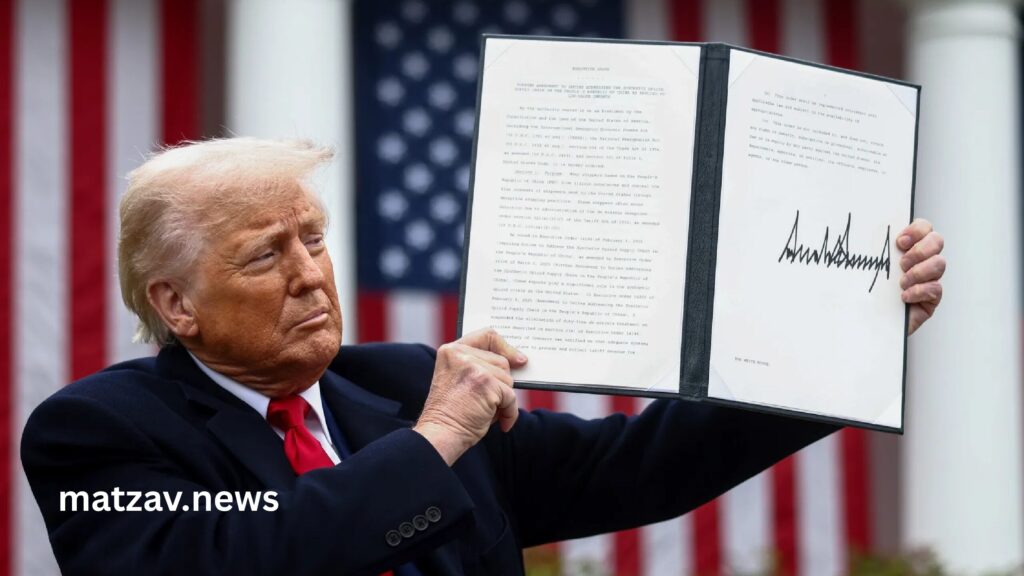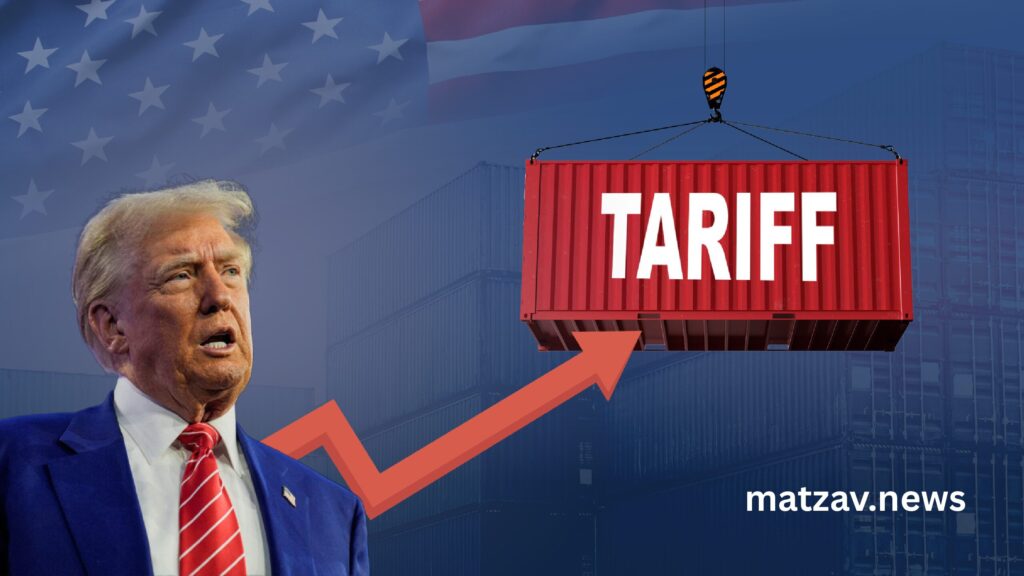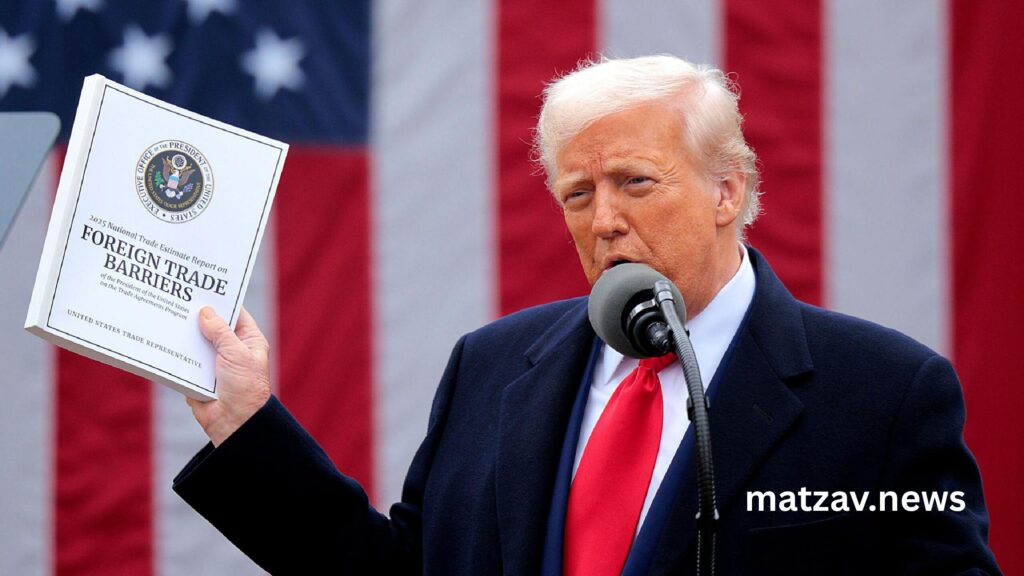The European manufacturing sector continues to face significant challenges due to the tariffs imposed by the Trump administration. These trade barriers, primarily targeting steel and aluminum imports, have disrupted supply chains, increased costs, and strained relationships between Europe and the United States. Salzgitter AG, one of Germany’s leading steel producers, has been vocal about the negative impact these tariffs have had on European industry, warning that long-term competitiveness is at risk.
The CEO of Salzgitter AG has highlighted the urgent need for dialogue and cooperation between the U.S. and Europe to prevent further economic damage. As industries grapple with these tariffs, experts and business leaders alike are calling for strategic solutions to safeguard jobs, stabilize markets, and foster a more balanced trade environment.
Impact of Trump Tariffs on European Industry
How tariffs affect European steel production
The tariffs introduced by the Trump administration imposed a 25% tax on imported steel and a 10% tax on aluminum. These tariffs were intended to protect U.S. domestic industries but have had unintended consequences for European steel producers. European manufacturers face increased costs when exporting to the U.S., which limits their competitiveness and reduces market access.
Read More: https://matzav.news/oil-prices-climb-amid-russia-ukraine-tensions-rise/
Supply chain disruptions and cost increases
Tariffs have led to significant disruptions in the supply chain. Many European companies rely on raw materials and intermediate goods imported from the U.S. or through U.S.-linked supply chains. The tariffs increase prices for these materials, leading to higher production costs and reduced profit margins. The uncertainty caused by fluctuating trade policies also complicates long-term planning and investment decisions for European firms.
Salzgitter CEO’s Perspective on Trade Relations

The Importance of Open Trade Between Europe and the United States
Salzgitter’s CEO stresses that open and fair trade between Europe and the U.S. is essential for economic growth and industrial innovation. The CEO warns that protectionist policies risk fragmenting the global market and undermining decades of cooperation that benefited both regions. Collaborative approaches are necessary to address trade imbalances without resorting to punitive tariffs.
Call for diplomatic solutions to trade tensions
In response to these challenges, Salzgitter’s leadership advocates for renewed diplomatic efforts to resolve trade disputes. Constructive dialogue and negotiation can help reduce tariff-related barriers and restore confidence in transatlantic economic relations. The CEO emphasizes that sustained engagement is vital to preserving jobs and fostering sustainable growth in both markets.
Economic Effects on the European Manufacturing Sector

Job losses and production cuts
The tariffs have contributed to job losses in key sectors of the European manufacturing industry. Higher export costs have forced some companies to reduce production or delay expansion plans. Smaller manufacturers, in particular, struggle to absorb increased costs, leading to layoffs and plant closures in certain regions.
Impact on investment and innovation
Trade uncertainty discourages investment in new technologies and infrastructure. European firms face challenges in maintaining their competitive edge as tariffs increase operational costs. Reduced capital investment slows innovation and hinders the development of advanced manufacturing techniques, potentially impacting Europe’s future industrial capabilities.
Future Outlook for European Industry
Potential scenarios without tariff resolution
If trade tensions persist, European industry could face prolonged economic difficulties, including reduced export volumes and weakened global market share. Tariff escalation may trigger retaliatory measures, further complicating trade relations and destabilizing global supply chains.
Strategies to mitigate tariff impacts
European companies are exploring various strategies to adapt, including diversifying supply chains, increasing local production, and seeking alternative markets outside the U.S. Policymakers in the EU are also examining protective measures and trade negotiations to reduce tariff-related damage.

Frequently Asked Questions
What are the Trump tariffs?
Trump tariffs refer to import taxes imposed by the U.S. government on specific goods, including steel and aluminum, aimed at protecting domestic industries.
How do these tariffs affect European steel producers?
They increase the cost of exporting steel to the U.S., reducing competitiveness and limiting market access for European producers.
Why did the U.S. impose these tariffs?
The U.S. aimed to safeguard domestic industries from foreign competition and reduce trade deficits.
What industries are most affected in Europe?
The steel, aluminum, automotive, and manufacturing sectors are among the most heavily affected industries.
How has Salzgitter AG been impacted?
Salzgitter faces higher export costs, supply chain disruptions, and pressure on profit margins due to tariffs.
Are there any solutions to the trade conflict?
Diplomatic negotiations, trade agreements, and tariff reductions are potential solutions to ease tensions.
What role does the EU play in this dispute?
The EU is actively engaged in trade talks and has imposed retaliatory tariffs on some U.S. goods.
Can European companies avoid the tariffs?
Some companies seek to redirect their exports to other markets or localize production to mitigate the impacts of tariffs.
How do tariffs affect consumers?
Tariffs can lead to higher prices for goods due to increased production and import costs.
What is the long-term outlook for European industry?
The future depends on successful trade negotiations and companies’ ability to adapt to evolving market conditions.
Conclusion
The Trump-era tariffs have significantly impacted the European industry, with Salzgitter CEO highlighting the challenges faced by steel producers and manufacturers. The increased costs, supply chain disruptions, and reduced market access pose a threat to the competitiveness of European companies. Collaborative diplomatic efforts and strategic adaptations are critical to mitigating these effects and ensuring a resilient industrial future for Europe.
